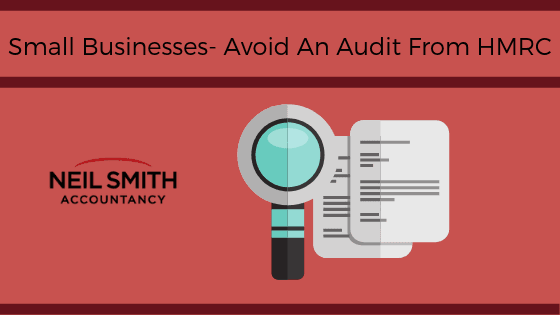It’s no surprise that governments don’t like the thought of tax avoidance, and that’s why inspections by the HMRC – often referred to as audits – are carried out to ensure companies are paying their fair share.
Although around 5-10% of these tax inspections are random, the vast majority are triggered by the violation of some directive or other. With this in mind, it pays to know precautionary measures to avoid the lengthy, stressful and sometimes expensive investigation process.
If you’re a small business owner who wants to avoid being audited, staying compliant with HMRC regulations is of paramount importance. Even appearing as if something is amiss can prompt the dreaded inspection, which is where the following tips can come in extremely handy.
Living Outside Your Supposed Means
The most obvious way of attracting attention is by spending more than you should be. As a small business owner, it’s unlikely you’ll have an excess of expendable cash. Splashing out on expensive cars or 5-star holidays is bound to arouse suspicion. Remain conservative with your spending, even if you have the funds, and don’t advertise your extravagant exploits on social media.
If you’re unsure what expenses can reasonably be counted as a business expense, it’s best to double check before making a purchase. It’s also good to remember that depending on the type of expenditure, your small business may be entitled to tax relief, helping you save money.
Keep the Clientele Happy
It’s a common belief that the government can act upon tip-offs. Although the validity of this claim is not proven, it’s something all small businesses should bear in mind. Disgruntled customers, rival businesses or even jealous friends could be capable of such an act, especially if you’re living a flashy lifestyle as noted above. Remain diligent so complaints aren’t made against your name.
Unusual Tax Returns
An almost sure-fire way of alerting the HMRC is by returning a suspicious tax return. For example, if your figures are extremely different from one year to the next, or your expenses have skyrocketed, then an audit is more likely to take place. With increased government powers to inspect your small business, such as obtaining information through third parties, ensure your tax returns are as accurate as possible.
Incorrect Tax Returns
As you’d probably expect, filing an incorrect tax return will flag your company as a riskier proposition in the eyes of the HMRC. Not only can you face additional penalties, an inspection may also occur if the errors are noticeably erroneous. If you do experience clear fluctuations from one period to the next, explain why these have occurred and provide evidence.
Companies that file accurate and timely tax returns are far less likely to face an audit. This is where an accountant is worth their weight in gold. They will keep your business on the straight and narrow, emanating a more professional appearance, and thus helping you avoid being flagged by the HMRC.
Although the planned Making Tax Digital scheme, making quarterly returns compulsory for all VAT-registered businesses has been delayed and rethought, many companies are going ahead in order to get a head-start on compliance as well as increase management and clarity of their accounts. Have a look at the pros and cons of facing quarterly digital tax returns alone to decide if you require professional assistance.
If you’re concerned about the possibility of a drawn-out government audit impacting on your business operation, please feel free to get in touch with us today at Neil Smith Accountancy and we’ll be happy to assist in any way we can.

